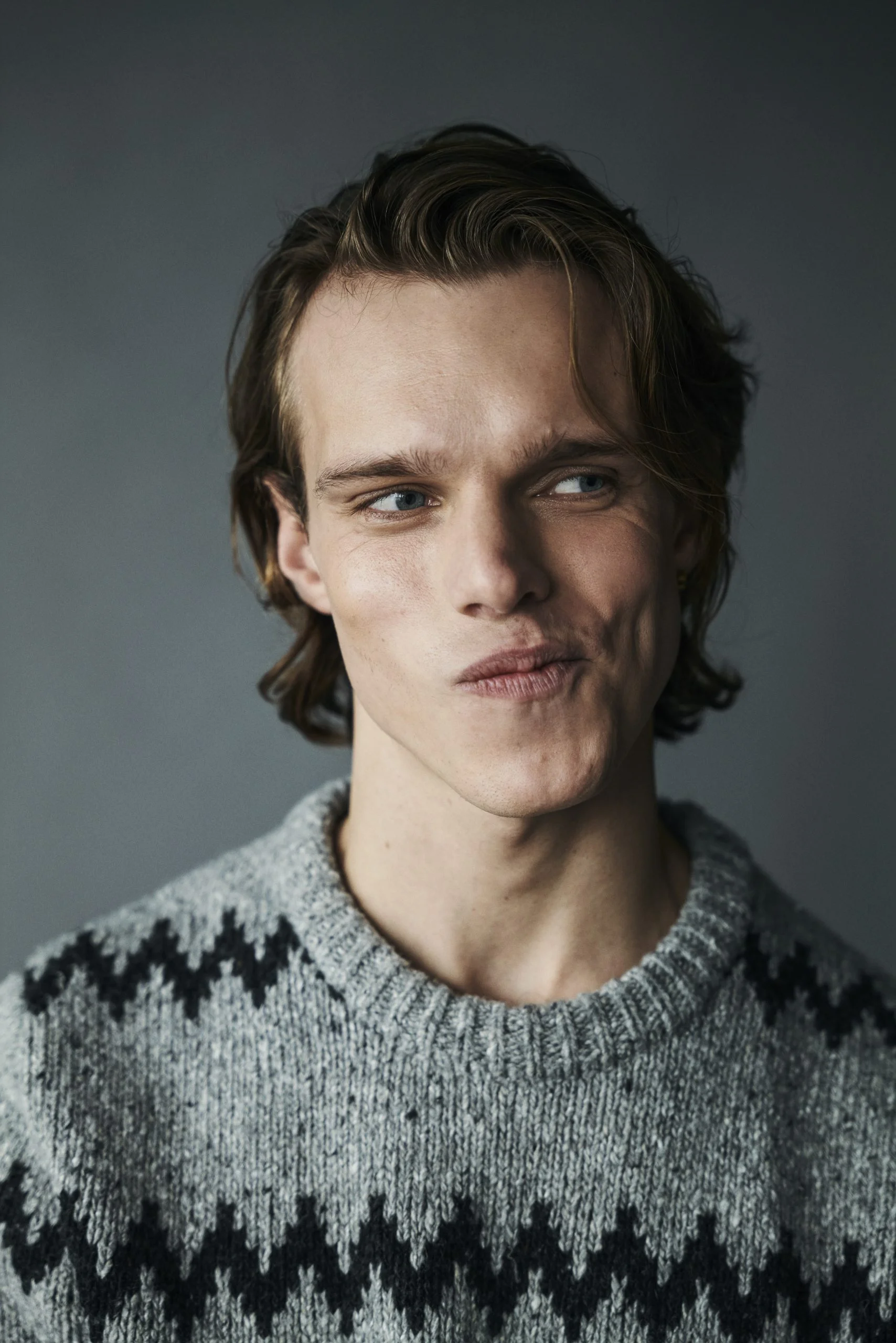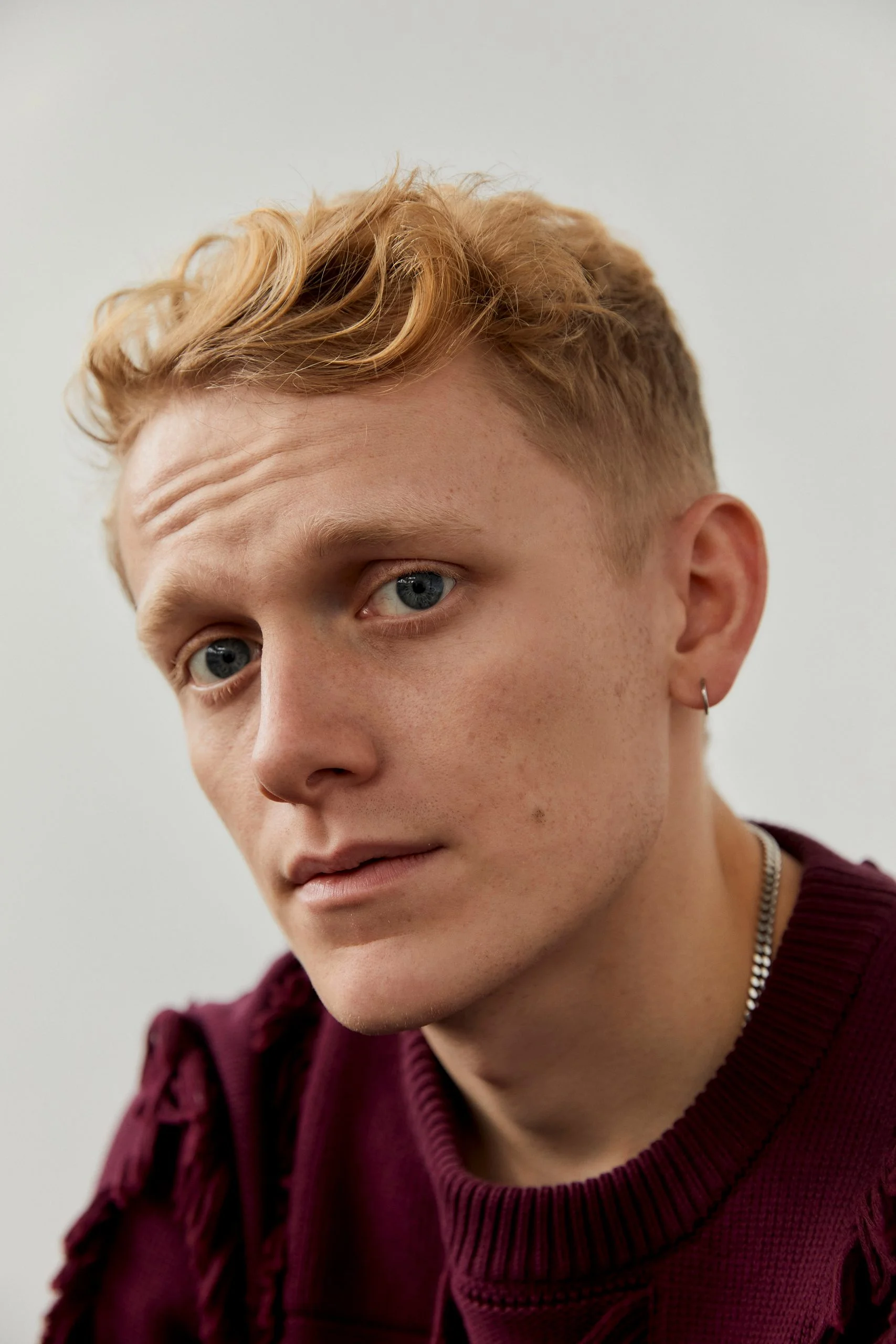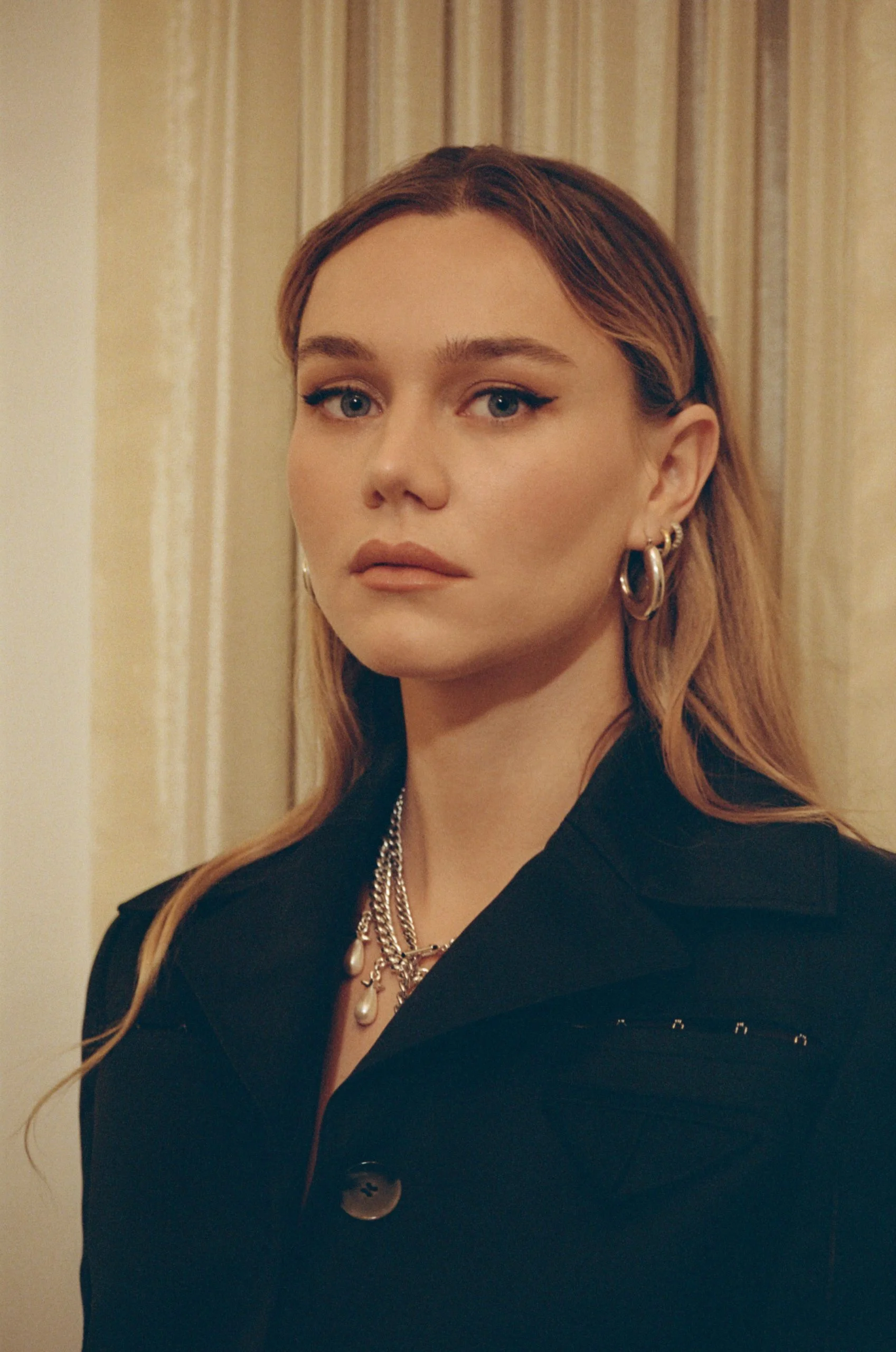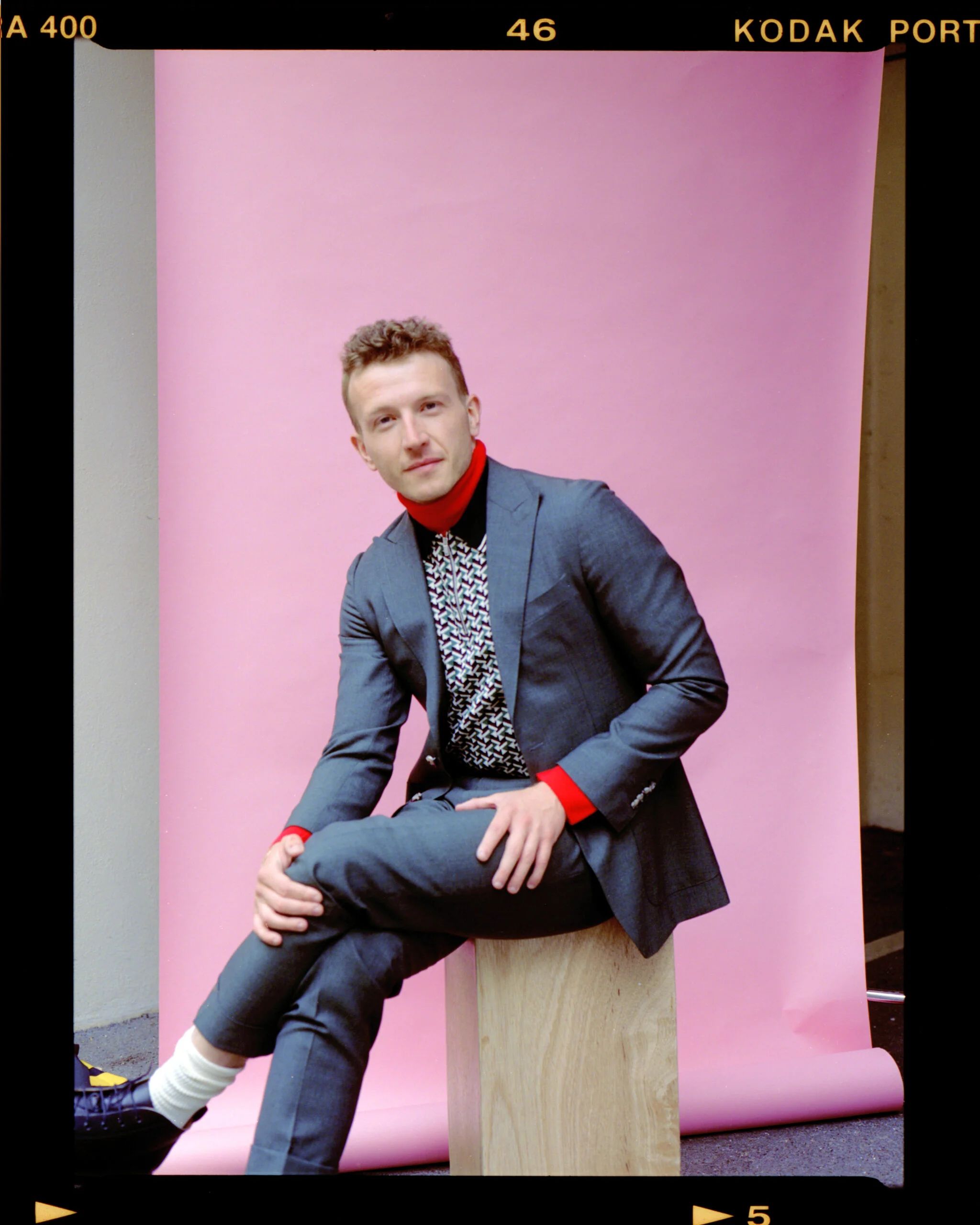
Tom Varey
Tom Varey gives a powerful and poetic performance in Ridley Road as Jack Morris, a young Jewish man who goes undercover inside a fascist organization.
After a stint on Game of Thrones, a journey to the island in Death In Paradise, and more, Tom Varey is now ready to go undercover — and to take part in some incredible stunts while doing so. In his new show Ridley Road Varey plays Jack Morris, a rough-around-the-edges type of man from Manchester that falls in love with Vivien Epstein (played by Agnes O’Casey) despite her being betrothed to another in an arranged business deal for her father.
After Jack disappears and Vivien flees the North to find him, she discovers that he’s in London — and has completely immersed within a fascist organization. Following in his character’s footsteps, Varey did the same; diving into whatever he could find that was relative to the story while leaning on Ridley Road screenwriter Sarah Solemani for her research recommendations. It’s within this ability — to both flesh out characters and find out what makes them tick — that gives Varey’s performance a distinct elevated (and utterly emotional) level.
1883 Magazine’s Kelsey Barnes chats with Tom Varey about his new role in Ridley Road, how the show draws comparisons between the rise in fascism in the 60s to the rise of fascism and racism today, manifesting Cristiano Ronaldo returning to Manchester United, and more.
You graduated from the Royal Academy of Dramatic Art and had your first acting credit in The Village back in 2014. How would you say you’ve grown and developed as an actor between then and now?
I’ve become more fearless for lack of a better word. We didn’t do much camera training at RADA [Royal Academy of Dramatic Art] so my first job was being thrown in front of a camera. I forgot how to be a human being! [Laughs] I couldn’t remember how to walk and talk! Having had more time in front of the camera, I feel more comfortable making the decisions I want to make on-screen… As long as it’s okay with the director, of course! At the start of my career, I was always aiming to please people, but now I feel freer in regards to my acting and making choices that will elevate the performance.
Ridley Road was inspired by the struggle of the 62 Group, a coalition of Jewish people who stood up against rising neo-Nazism in post-war Britain. You play a character called Jack who is someone that goes undercover inside a fascist organization. What attracted you to the project?
When I read the script, I finished it in one night. It was so well written and so exciting while also having everything — the drama, the action, the romance. I needed to know what happened next. I knew the big riot scenes would be so great to shoot and was intrigued by what they’d look like on-screen. I didn’t know the history of the rise of the far-right in the 60s so I was reading the script like it was a historical textbook. Learning about the 62 Group was incredible; they are bloody awesome. I knew I wanted to be a part of telling this story.
Did you read the book [by Jo Bloom] prior or do any extra history on the coalition?
During the lockdown, I thought I would write to Sarah Solemani [Ridley Road’s screenwriter] and asked her advice on things I could read or watch to better understand the mindset and universe these characters were in. She sent me a pretty comprehensive list of stuff to watch and I started consuming it all. I found it helpful for that first day on set because it gave me an understanding.
It gives everything a bit more context; even if your characters aren’t technically real or based on real people, you can understand what their end goal would be.
Yeah, exactly. Although one of the books was on the 43 Group, which was different, but the 62 Group was heavily influenced by the formation of the 43 Group. I remember reading about Morris Beckman, a member of the 43 Group, and he would talk about not exactly “looking” Jewish. There’s a bit in Ridley Road where they talk about how they don’t look Jewish which allowed him a free pass to infiltrate this awful fascist group.
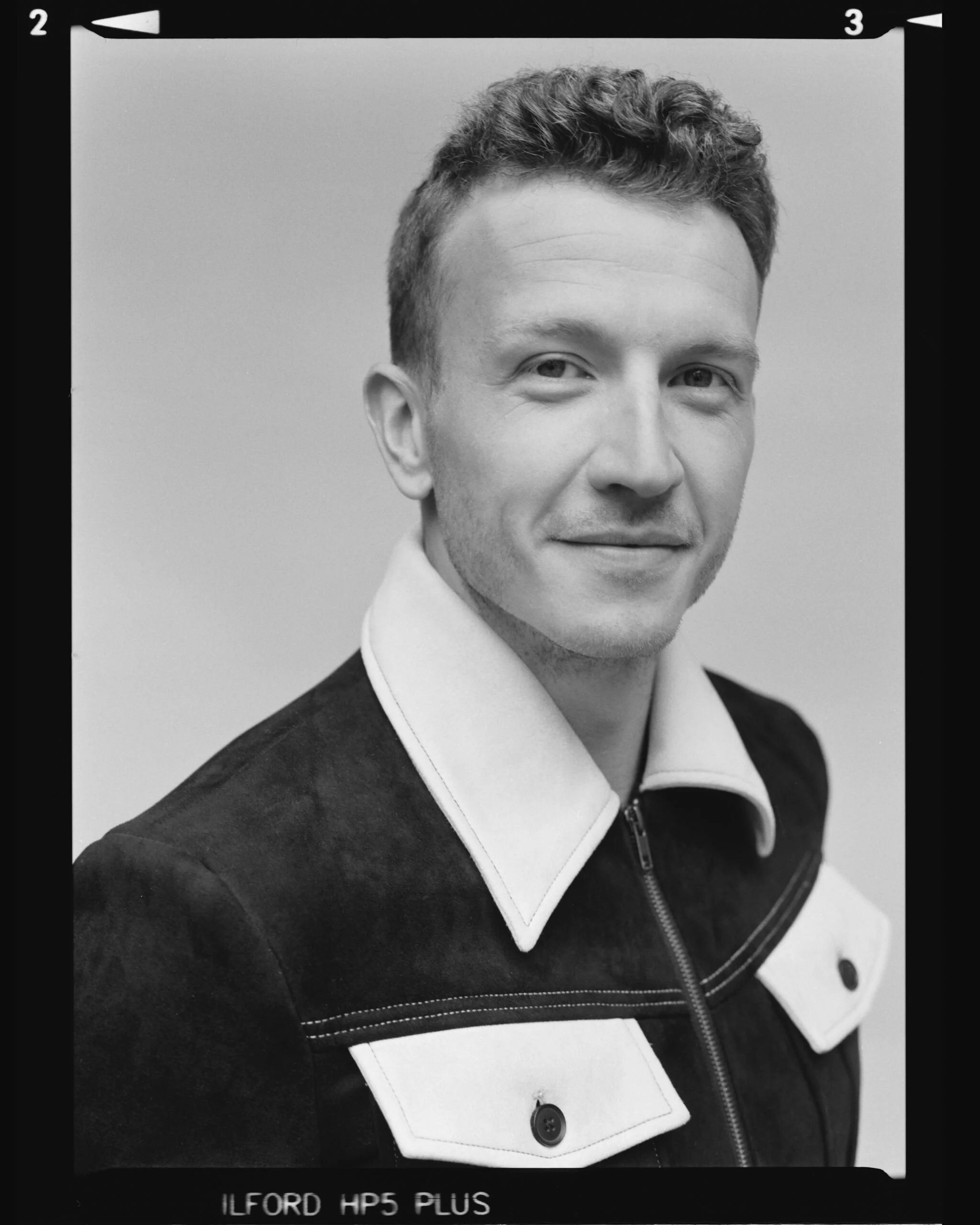
It’s amazing to hear how you work to flesh out your characters because you completely immerse yourself in the story and that’ll give such power to your performances.
Although my character isn’t a real person, there are aspects of the members of the group in him; it was nice to draw on a culmination of all of them. I watched a documentary on YouTube about the members of the 43 Group. It was just talking and they are such cool dudes. They aren’t afraid of a scrap and I like they actively were involved in the fight.
One of the most affecting scenes for me was when Jack goes missing and then realizes that Vivian has chosen to also infiltrate the fascist organization. Was there any scene in particular that you found moving to shoot?
I like that you brought up that one because it sticks out to me as well. It was one of the first scenes that we shot and it took a while to get all of the bruising and bandages on. That room we filmed in was really small which I loved because I like filming in places that feel quite intimate. It was beautifully lit and you’re able to feel like you’re there. Also, the scene where Jack and Vivian see each other in the tailor shop — I remember reading that for the first time thinking, Oh, they have tons of history and I’m going to have to bring it for the audience to see that. I love scenes like that because it makes you work hard for it.
I read that the screenwriter Sarah Solemani said that she hopes it’ll bring awareness to the threat of fascism in the UK today because the themes in this story are just as prevalent today as they were back then. What was it like to explore those themes?
Yeah, that’s what made it feel incredibly contemporary. I had to keep reminding myself that we’re in the 60s because some of the rhetoric that was used you still hear people using it nowadays. It did feel incredibly relevant and important that we’re seeing people fighting the good fight and hopefully it helps awaken something in people and open their eyes.
In an interview you did around the release of “A Taste of Honey,” where you played a bit of a villain, in which you try to empathize with every character whether they are inherently good or bad. Why is it important for you as an actor to approach each character with a degree of empathy and love?
As an actor, I think you have to do that because you don’t want to have any preconceptions when you’re approaching a character. Ultimately, humans are human and you have to think about what has happened to that person to make them that way. I don’t think anyone is born evil; something has happened to them to make them become what they are however they end up being. I believe thinking about why a character acts a certain way is far more interesting than just calling a character a bad lad. It’s about approaching it by asking where that evil comes from rather than just casting them aside and raising my furrowed brow to make them seem evil! [Laughs]
With Jack on Ridley Road, the scripts were so well-written so a lot of the scenes speak for themselves. The real work was to make sure we were acting the scenes properly. I just wanted to make sure my performance of Jack showed how dedicated he was to the cause; he’d be willing to die if it meant there would be justice. Approaching him vs. some of my other characters wasn’t as different as one might seem, it is just about getting to the heart of the character and asking where they’ve come from and what they’ve been through.
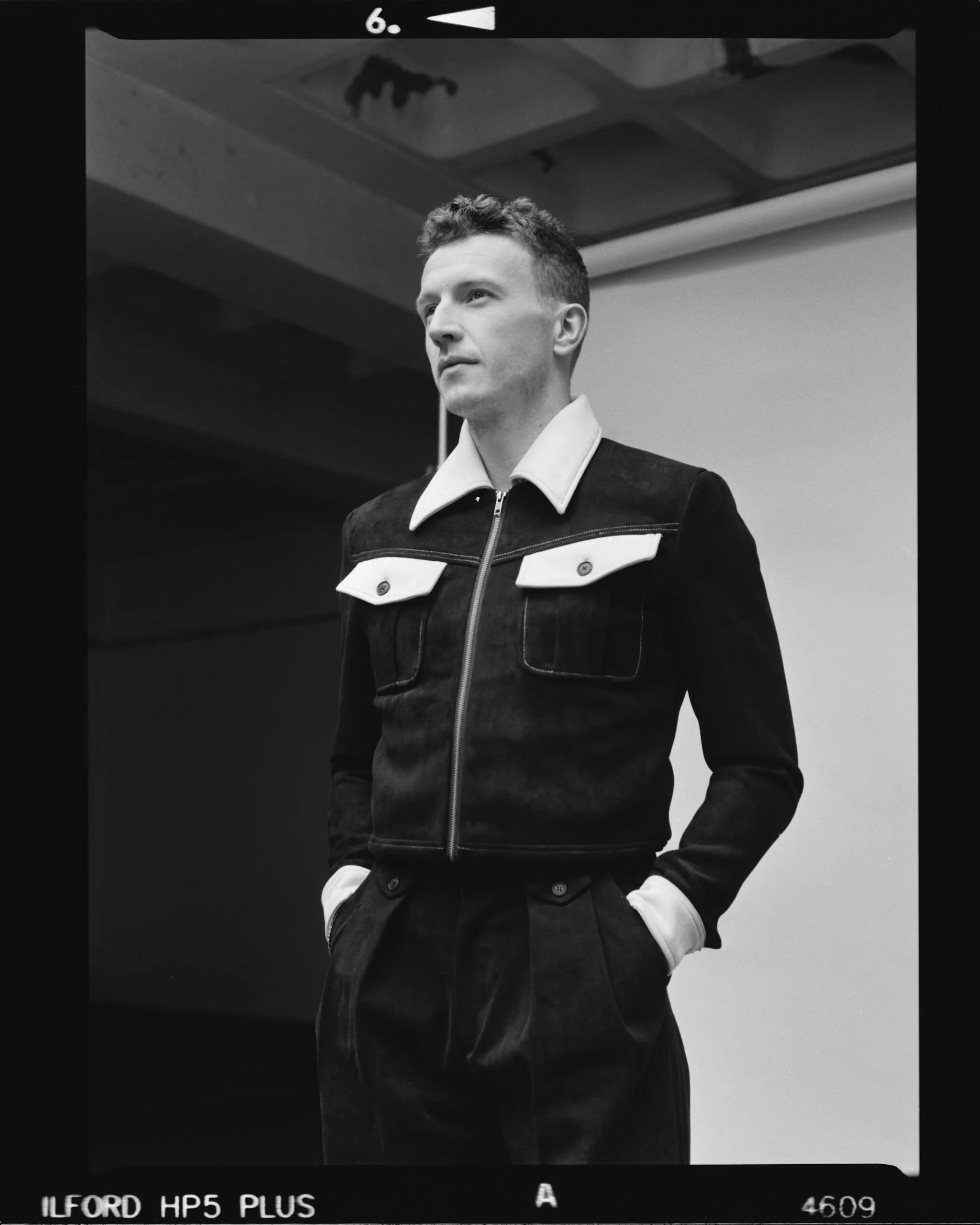
Something I admire about you is that you like to highlight the working class in your work; is that something you want to continue to do? It’s refreshing to see on TV.
I think it just landed in my lap because of my accent! [Laughs] I’m happy to show the working class on-screen. I’m proud of the fact that I’m working class and go to drama school. It is refreshing to see working-class characters on the BBC. We need more of these stories told on-screen in an authentic way.
Speaking of the North, correct me if I’m wrong but I read that you’re a fan of Manchester United — I’d love to hear your thoughts on Cristiano Ronaldo returning?
I am! I think he’s going to score a lot of goals and make us serious contenders for the big trophies. It’s odd, it happened so quickly. I was heading to a music festival and in the morning, he was rumoured to be going to Man City. I had this weird feeling that the rumour would be wrong and all of a sudden…. I’m not saying I’m a psychic, but over the course of four hours, he was no longer going to City and came back home to United instead!
I feel like you might’ve already done this with Cristiano Ronaldo returning, but if you could manifest something for yourself this year what would it be?
Oh my, that’s a good one. Professionally I want people to really enjoy Ridley Road and hope it sparks something in them. I hope they find inspiration in it and fight for what they believe in. I want to win a disco award. I’m quite good so it’s feasible.
I feel like since you’ve manifested Ronaldo, a disco award will be easy.
I agree wholeheartedly.
Ridley Road is airing now on BBC One.
Interview by Kelsey Barnes
Photography by The Other Richard
Styled by Bertie Taylor-Smith
Grooming by Sam Cooper



